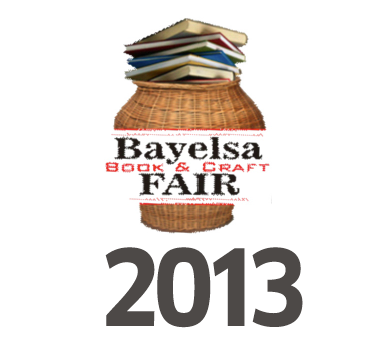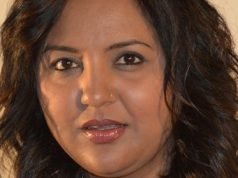The Bayelsa Book and Craft Fair did not hold – or it did? – or one cannot be sure if it was an assemblage of writers and artists who were billed for, as a Fela song goes, Original Sufferhead or simply an effort by the sponsors to piss away money. I was one of the writers who were invited to join in a number of panel discussions, all of which never held. Anyone who saw the schedule of events will be impressed by the ambition of the organizers. As Original Sufferheads, we were treated to a large empty hall (named after a dictator!), ghost panels, no-breakfasts, on-your-own trips to the venue and airport.
But between dreams and reality lie shadows. And imagination is a rainy place. I have reason to believe that the range of imagination of the organizers of the Fair was one thing, and realizing those ambitions was something else altogether.
We knew we had been enlisted into a regime of uncertainty when, by the evening preceding the day of our (expected) arrival, we were yet to receive our flight tickets. Truthfully, in one year of travelling around the country promoting my book, this is the first event where my flight ticket is paid for. So I decided to bear with the frustrations of being unable to schedule meetings for the week while unsure of whether I would eventually attend the fair. Until 2.00pm on Wednesday afternoon, the day I was billed to arrive Bayelsa, I had not received a confirmation of my flight. Three hours later, I was at the airport. Seven hours later, 12.00am, I was in a hotel room in Yenagoa.
I was willing to put up with the logistical challenges – I am friends with the Director, I like his style, I love discussing literature (sometimes boring, though), and when out of Lagos, I write better.
On the morning of day one, I did not get to the venue until noon, and I had to find my way there. A session had just begun – Prof. Elechi Amadi, Gabriel Okara, Prof. Ebiegberi Alagoa were in conversation about Achebe. Then there were readings by two guests from There Was A Country, then musical performances, then a lunch break. According to the schedule, a Travel Writing Prize was to be inaugurated in honour of Gabriel Okara (who is 92, the oldest Nigerian poet alive); for reasons I do not understand – did I miss an explanation? – this Prize was never inaugurated. The conversation between Prof. Amadi and Prof. Alagoa, for instance, seemed makeshift, a redress for a bigger, irreparable flop.
The following day was worse. By 1.00pm when I arrived with Dami Ajayi – after 45 minutes of trying to find our way – I noticed that Tolu Ogunlesi was moderating a panel. Unoma Giese, Ayodele Arigbabu and Sylva Nze Ifedigbo were the panelists. Half of the time I was distracted, sharing jokes with Dami, who I had not seen in months, and whose presence and friendship made up for what would have been a regrettable visit to Bayelsa.
I learnt later that the event had been hijacked by Ifedigbo, who realizing that with Onyeka Nwelue’s unexplained disappearance that Friday, nothing might have been achieved went all the way – reinventing a new schedule, forming panels again and again. Because, really, writers and literary enthusiasts, unlike film stars and filmmakers, do not demand fanfare, they just do it. Or so I think.
Ayodele Olofintuade will not agree with this speculation. In one of her tweets on Saturday 20, which I have edited for clarity, she thinks that,
“…Nigerian writers should not be treated like poverty stricken, fame hungry idiot[s]. We need to put our feet down…”
And Ukamaka Olisakwe, in her Facebook status, gives the impression that our literary industry needs time to grow, that perhaps a few lessons from our Nollywood industry may make us better, stronger.
“It is quite sad that these young voices – that we young voices – are unsung; that we are yet to be widely read by Nigerians.
At the Tourism centre where we had launch on Saturday, all of them Nollywood stars sat to eat with us. Yes, we took pictures. Zack Orji was interested in reading Andrew’s book, and mine too. He said, ‘we would love to adapt your stories into films. We would love to work together’. I was a little apprehensive. I didn’t know why. Andrew shrugged and we laughed and chatted, before returning to our tables to continue our discussions. And later at the special event by the Bayelsa State governor at the government house, I watched still. And all the while what rankled my mind was ‘where are my contemporaries?’ ”
I do not entirely agree with her. I have no answer for Ukamaka because I think that if the Bayelsa Book and Craft Fair had been successful maybe no one would need to ask that question afterwards. If the Fair had not seemed less important than the African Movie Academy Awards, then perhaps we could begin to chart the course to having sustained conversation with Nollywood.
We did not see Onyeka Nwelue until we left Bayelsa; of course, we had to arrange transportation to the airport ourselves, a team that included publisher Ayodele Arigbabu, singer Aduke, her crew and myself. There were rumours that Nwelue had gone to the Port Harcourt airport to receive foreign guests, which makes it hard not to justify Ayodele Olofintuade’s position. He confirmed that the event had failed in his Facebook status update, which appeared to suffice as an apology letter to the crowd of writers he had invited (via email) to Yenagoa:
“The Book Fair was a monumental failure. I take responsibility of everything that went wrong. I sincerely apologise and wish that people will still take me serious. Thank you.”
To take Nwelue serious has never been difficult. He is famous for hard-hitting ego-styled status updates, caustic commentary, and his frequent trips around the world. But I doubt the problem is about his seriousness – it bothers on a larger scale of incompetence and lack of strategic foresight. I will like to believe that in the craze to make things happen, Onyeka Nwelue, and even many more young people, are in a danger of rushing into action that is not strategic, result-oriented and ultimately, meaningful. We now understand that the opposite word for inaction is not simply action, but action that is empty, and that achieves nothing.
There is so much talk about the work that has to be done for the Nigerian literary industry, and I have written very many pieces on this. Ukamaka understands the need to take action, and I appreciate her concern (she brings her motherliness into discussing literature as well, and I am truly charmed – one writer made the joke that he could buy her off her husband.) Yet I am uncomfortable with her opinion that we need to “assert our relevance.” As young writers we are simply tasked with speaking to, for, and about our time – and sometimes we are tasked to just simply write popular fiction and blog posts. I refuse the responsibility to work to prove that we can be equated with Nollywood.
Yes, collaboration is necessary, and anyone who is interested in working with Nollywood should go ahead and do so. But this is not the collective task of the writing community.
By organizing a failed Book Fair, Onyeka Nwelue has taught us a few things about taking action. And I think the most important lesson is that it is one thing to speak in self-aggrandizing tones, to be ambitious, and it is another thing to negotiate the difficult terrains of reality.
Emmanuel Iduma is the author of Farad, a novel.
*The views expressed in this opinion piece does not reflect the views of Saraba Magazine

































[…] Emmanuel Iduma is the author of Farad, a novel. […]
Heard of the Bayelsa flop from several sources.The organisers of such fair in the future should learn from old hands in the business or incorporate such persons in the plans.I see a tendency becoming fadish among some so-called younger nigerian writers writing off their much more experienced slightly older colleagues as outdated.Such posturing which are often without any substance leads to the kind of experience writers went through in Bayelsa.In writing and in organising,you must learn at the feet of the masters or your elders before you can ever get it right.
Comments are closed.